- Home
- Beverly Cleary
Henry and the Clubhouse Page 3
Henry and the Clubhouse Read online
Page 3
You make me, Ribsy told Ranger.
“Cut it out, both of you,” ordered Henry.
Planning to grab Ribsy’s collar and drag him away, Henry jumped down from the steps to the lawn just as the growls erupted into snarls and the dogs went for each other’s throat.
“Ranger!” shrieked the woman.
“Ribsy!” shouted Henry. The dogs were on each other in a twisting, tumbling tangle that seemed to be made up of feet, fangs, and tails.
Henry ran over to the snarling, yelping pair and just as he was about to grab Ribsy’s collar, he found the other dog’s mouth in front of his hand. Quickly he drew back. He saw that he could not stop the fight and since he could not, he wanted Ribsy to win. If it had not been so important for him to sell a Journal subscription he would have yelled, “Go get ’im, Ribsy.”
“Look out!” shouted the woman. “Don’t let him bite you!”
Neighbors began to gather on the sidewalk to watch the excitement. “Dogfight! Dogfight!” a boy yelled.
“The hose!” shouted someone. “Turn the hose on them!”
“I can’t,” cried the new neighbor. “I don’t know where it is!”
“Hey, look at old Ribsy,” said Scooter, who had ridden over on his bicycle to see what all the noise was about. “Go get him, Ribsy!”
“You keep quiet!” ordered Henry, even though he wanted to cheer his own dog on.
“Aw, your old mutt couldn’t lick a Chihuahua,” scoffed Scooter.
“He could, too,” said Henry hotly. He wasn’t at all sure Ribsy could lick a Dalmatian, but he could lick a Chihuahua. Henry was positive of that.
“Who’s winning?” asked Robert, who had just arrived, along with Beezus and her little sister Ramona.
“The new dog,” answered Scooter, and rode on down the street as if the fight was already over.
Half afraid that Scooter might be right, because the new dog was both bigger and younger than Ribsy, Henry tried once more to reach into the snarling, rolling mass of dog to grab Ribsy’s collar. He did not have a chance.
A man grabbed Henry by the arm and pulled him away. “Don’t you know that’s a foolish thing to do?” he demanded. “Those dogs might bite you.”
“Yes, but he’s my dog,” Henry tried to explain. “I don’t want him to get hurt.”
The next-door neighbor was screwing the garden hose to the faucet. He turned on the water and advanced toward the dogs with the gushing nozzle in hand. “Stand back, everybody!” he yelled and turned the full force of the hose on the dogs.
Water sprayed in all directions. Still the dogs snarled and snapped. The man with the hose moved closer, so that the force of the hose was stronger. The stream of water caught Ribsy right in the face and blinded him for the moment. This gave Ranger the advantage. He seized Ribsy by the scruff of the neck, and though Ribsy was a medium-sized dog, Ranger began to shake him. The man turned the hose in Ranger’s face.
Ribsy wrenched free and ran dripping down the street with his tail between his legs, ki-yi-ing all the way. The Dalmatian was after him in a flash of black and white.
Henry did not know what to do—whether to run after Ribsy and try to rescue him, or to stay and tell the woman he was sorry his dog got into a fight with her dog, even though it was her dog that started it all. He also wondered what Mr. Capper would think of all this. A fine job of marching right up and ringing that doorbell this had turned out to be.
Before Henry had a chance to decide what to do, Ranger came trotting back down the street looking much pleased with himself. In the next block Ribsy could be heard ki-yi-ing toward home.
“Bad dog!” said Ranger’s owner, shaking her finger at her pet.
Ranger shook himself with a great clatter of license tags. He did not look one bit sorry. Instead, he looked disapprovingly at Henry, who felt it was wise to retreat to the sidewalk. Ranger walked to the foot of the steps, flopped down, and looked around as if to say, I am monarch of all I survey.
Henry was still trying to collect his thoughts and say something. How had he planned to begin his sales talk? I am Henry Huggins, your Journal carrier, but what came next? Ribsy’s ki-yi-ing in the distance did not help Henry to think.
Before Henry said anything, Ramona passed him and walked right up to Ranger’s owner. “Are you the new lady?” asked Ramona.
“Why yes, I am, dear,” answered the woman, pleased to have a little girl making friends with her so soon after she had moved into a strange neighborhood.
For once Henry was glad to see Ramona. If she talked to the lady a minute he would have a chance to think of his sales talk once more.
Ramona looked straight at the new neighbor. “Remember,” she said with a ferocious frown as she pointed her finger, “only you can prevent forest fires!”
Henry groaned to himself.
The lady looked startled. She had no answer for Ramona.
Beezus ran up to Ramona and grabbed her by the hand. “Don’t pay any attention to her,” she said apologetically. “She says that to everybody because she hears it on TV so much. You know, Smokey Bear comes on and says it between commercials.”
“Oh…yes.” The lady did not look as if she understood at all. Perhaps she did not own a television set.
“Come on, Ramona.” Beezus tugged at her sister’s hand.
This was too much. Henry felt the only thing he could do was leave. First his dog got into a fight with the lady’s dog and now the little sister of a friend of his practically accused the woman of going around setting forest fires. This was no time to sell a subscription. “I’m sorry about the fight,” he blurted and left quickly, followed by Beezus, who was pulling Ramona along by her hand.
“Remember—only you can prevent forest fires!” Ramona shouted back to the lady.
That Ramona, thought Henry crossly. She was only five years old but she was the biggest pest in the neighborhood. At the corner Henry paused to glance back. The woman was nowhere in sight but Ranger was sitting on the front porch as if he was standing guard. It seemed to Henry that the dog was challenging him to set foot on his property. Just go ahead and try it, he seemed to say. Go on, I dare you.
To Henry’s surprise Mr. Capper did not ask the next day if Henry had sold a newspaper subscription to the new neighbors, and Henry suspected Mr. Capper wanted him to bring up the matter. He didn’t see how he could come right out and say, “I didn’t get that subscription, because the new neighbor’s dog didn’t like my dog.” Henry made up his mind that since he left Ribsy at home while he delivered papers, he would stop on his route this very afternoon and sell that subscription. By that time Ramona would be home watching television, so she could not spoil his sale a second time.
When all his papers were folded and stuffed into the canvas bag, Henry mounted his bicycle and zigzagged down the street pitching Journals right and left. He was wearing a different T-shirt today and he hoped the new lady might have been so busy watching the dogfight that perhaps she hadn’t noticed what he looked like. “Good afternoon,” he whispered to himself. “I am Henry Huggins, your Journal carrier….”
When Henry came to the house he saw Ranger resting on the front porch, his nose on his paws, his eyes watchful. “Hi, Ranger,” said Henry, in his most friendly manner.
Ranger’s answer was to jump to his feet, barking furiously, and leap down the steps after Henry.
There was nothing for Henry to do but pedal down the street as fast as he could go, with the dog snarling and snapping at his right foot every time he pushed down on the pedal. Never had Henry ridden a bicycle so fast. By the time he reached the corner he could no longer breathe in all the air he really needed to keep him going, and each time he bore down on the pedal he expected to lose a piece of his jeans or maybe even a piece of his foot.
By the middle of the next block Ranger suddenly stopped chasing Henry, turned around, and trotted toward home with an air of having done his duty. It seemed to Henry that the dog was not even out of breath.
<
br /> Henry came to a stop, sat on his bicycle, and panted. Boy! That was close, but the worst of it was that Henry still had to deliver the papers in Ranger’s block. When he had caught his breath he parked his bicycle against a tree and returned on foot very, very quietly, being careful to keep out of Ranger’s sight. He did not throw the papers. He laid them silently on the lawns and tiptoed away so that he would not disturb Ranger. He had cured Ribsy from running off with newspapers by squirting a water pistol at him every time he went near a paper, but Ribsy was a good-natured dog. Henry did not think he would care to pause long enough to aim at Ranger. He might lose a leg while he aimed. He would like to see Mr. Capper march right up and ring that doorbell. He would have to wear a suit of armor. Or maybe even ride in a tank.
And each time Henry silently laid a paper on a lawn he became a little more angry. He had just as much right around here as that old Ranger. More, because he had lived here longer. And he was a human being, not a dog. By the time Henry had finished delivering the papers in Ranger’s block he was just plain mad. He wasn’t going to be pushed around by any old dog. No, sir! He was going to get that subscription if it was the last thing he did.
And remembering Ranger’s speed and his sharp white teeth, Henry felt that getting that subscription might very well be the last thing he did.
3
Trick or Treat
Henry Huggins was sure that this year he had thought up a better Halloween costume than anyone else in his neighborhood. No tramp or clown suit—not for Henry. He had thought up something different, something that no one else would think of in a million years.
There was just one flaw in Henry’s anticipation of Halloween. He still had not sold the new neighbor a Journal subscription and although Mr. Capper had not mentioned the matter, Henry knew the district manager was waiting for him to say something about it. But what could Henry say? Every time he tried to approach the house Ranger chased him away. How the other Journal carriers, especially those in the eighth grade and high school, would laugh at that!
Henry was particularly worried because his father knew Mr. Capper, and if the two men happened to run into each other, Mr. Huggins would probably say, “How’s Henry getting along with his route?” and Mr. Capper would answer, “He delivers the papers all right, but he’s a terrible salesman.” Mr. Capper always said there were three parts to a carrier’s job: delivering, collecting, and selling. Then his father would say, “No more work on the clubhouse.” He might even tell the boys to tear down the frame which they had so carefully built.
After supper on Halloween Henry tried to shove all this to the back of his mind. It was time to get ready to go trick-or-treating, a time for fun, not a time to think about his troubles. Henry went to his room and shut the door. He got out a bottle of ink (washable, it said on the label, and he hoped the label knew what it was talking about) and an old lipstick of his mother’s. He went to work and applied war paint to his face. When he finished he did not need a Halloween mask from the dime store like the ones the rest of the boys and girls would wear. No one would guess it was Henry Huggins under the lines and circles he had drawn on his face. Then he fastened an old belt around his head and through it stuck a feather from one of his mother’s old hats. Next he draped an Indian blanket around his shoulders and fastened it with safety pins—lots of them. He needed his hands free to carry the paper bag for all the treats he would collect that evening.
Henry studied himself in the mirror and was pleased with what he saw—a fierce Indian that no one would ever guess was really Henry Huggins. But the best part of his costume was still to come. Henry opened his bedroom door. “Here, Ribsy,” he called. “Come on, boy!”
Obediently Ribsy trotted down the hall and into Henry’s bedroom. Henry opened a bureau drawer and took out a rubber wolf mask which he slipped over Ribsy’s head. There! His costume was complete. He was now an Indian accompanied by a wolf, a funny-looking black-and-white-and-brown spotted wolf, it was true, but from the neck up Ribsy was a wolfish-looking wolf with long white fangs and a bright red tongue.
It would certainly be lucky for Henry if he and Ribsy happened to meet Ranger. Boy, old Ranger would take one look at Ribsy-the-wolf and practically turn a backward somersault he would be so surprised and scared. Then he would tuck his tail between his legs and run for home as fast as he could go with Ribsy-the-wolf right after him. By the time Ribsy got through with him, old Ranger would have learned which dog was boss around this neighborhood.
Unfortunately, as was so often the case, this good idea of Henry’s had a flaw. With a rubber mask over his head Ribsy would not have a chance if he got into a dogfight because he would not be able to bite back. With Ranger he probably would not have a chance without a mask. It would be wisest for Henry to stay away from the new neighbor’s house that evening. He did not mind. Halloween was no time to sell a newspaper subscription.
Ribsy sat down and scratched.
“Hey, cut that out!” ordered Henry. “You’ll tear the mask.”
Henry went out to show off his costume to his mother and father. Mr. Huggins laughed and Mrs. Huggins pretended to be frightened at seeing an Indian and a wolf in the house. Nosy, the cat, was really frightened. He fluffed up his tail and jumped to the back of the couch, where he arched his back and kept a wary eye on the wolf.
“Do you think Ribsy is going to stand for that mask very long?” asked Mr. Huggins.
“I think so,” said Henry as he opened the front door. “We’ve practiced in my room every day this week. When I finished my route I came home and put the mask on him. He seemed sort of puzzled at first, but he’s used to it now. I held him up so he could see himself in the mirror, and I think he likes it.”
It was a perfect night for Halloween. The stars were bright and a north wind sent leaves skittering along the pavement. Jack-o’-lanterns grinned in front windows. Bands of boys and girls, some of them wearing costumes that glowed in the dark, trooped from door to door. Mothers of small children lurked in the shrubbery, while their little rabbits or ghosts climbed steps and rang doorbells. Henry felt so good he did a war dance in the middle of his front lawn before he started down the street.
Before Henry had had time to ring a doorbell, he met a boy wearing a green cardboard head intended to look like the head of a man from outer space. Suddenly the outer space man’s eyes lit up in a fiendish and scary way that made Henry suspect his friend Murph must be inside. Murph was the only boy in the neighborhood who knew enough about electricity to think up such a costume.
Henry raised his hand in an Indian salute. “How,” he said, carefully disguising his voice.
Silently the space man held out his hand. Henry grasped it. “Yipe!” he yelled, in his own voice, because he was grasping a buzzer that Murph held in the palm of his hand.
Murph laughed. “I thought it was you under that war paint.” He leaned over and patted Ribsy. “Hiya, wolf,” he said. “I knew who you were by your spots.”
Together the boys proceeded down Klickitat Street ringing doorbells and shouting, “Trick or treat!” Everyone laughed at Ribsy’s costume and gave Henry an extra treat for his wolf. Gradually their bags grew fat with candy, peanuts, popcorn balls, individual boxes of raisins, apples, and bubble gum. The boys no longer stopped at every house. They compared notes with other trick-or-treaters and soon learned which people gave jelly beans or all-day suckers. These houses they skipped. They did not like jelly beans and Henry felt that a boy who had a paper route was too grown-up to lick a sucker.
At one house which was completely dark, Henry and Murph hesitated. “Should we bother?” asked Henry. “It doesn’t look as if the Morgans are home.”
“We might as well skip it,” said Murph, and just then a car turned into the driveway and drove into the garage. The headlights revealed a garage cluttered with tools and boxes, and decorated with a collection of old license plates. On a shelf at the back a stuffed owl with wings outstretched and claws poised for attack stared
glassily into the night.
“Come on,” said Henry, as Mrs. Morgan got out of the car. “She’s got a lot of bags in back. Maybe she just bought something good at the market.”
The two boys and Ribsy walked up the driveway. “Trick or treat!” shouted Henry and Murph. Murph pressed the button that lit up his outer space head.
“Oh, my goodness!” Mrs. Morgan exclaimed, turning around. “An Indian and a man from space. And a wolf! You certainly startled me.” Then she hesitated. “Well…I’m afraid you will have to go ahead and play a trick.” She peered into the paper bags in the backseat. “I’ve just come from the market, but all I bought was detergent and coffee and cat food and some things for breakfast. I don’t have a thing to treat you with.”
This was awkward. Henry could not recall a Halloween when he had not been treated by everyone. Why, some of the younger children in the neighborhood did not know that trick or treat meant they were supposed to play a trick if they were not given a treat. Neither Henry nor Murph was prepared to play a trick. They had not even brought a piece of soap for soaping windows.
“Aw, that’s all right, Mrs. Morgan,” said Henry. After all, she was a very nice lady, and one of his Journal customers.
“Why, it’s Henry Huggins!” exclaimed Mrs. Morgan. “I didn’t recognize you in all that war paint.”
Naturally Henry was pleased that his neighbor had not penetrated his disguise. “That’s a keen owl you have there,” he remarked. “It’s real fierce-looking, as if it was about to catch an animal or something.”
“It’s a great horned owl,” said Murph, whose head was full of information like this. “Those license plates go all the way back to 1929.”
“Mr. Morgan always nails the old plates on the wall every time he gets a new one.” Mrs. Morgan followed Henry’s eyes to the owl. “Henry—since I don’t have a treat for you, how would you like to have the owl?” she asked, as if she had just had an inspiration.

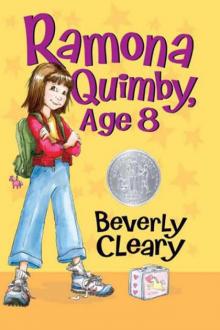 Ramona Quimby, Age 8
Ramona Quimby, Age 8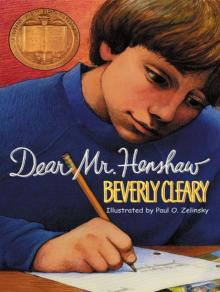 Dear Mr. Henshaw
Dear Mr. Henshaw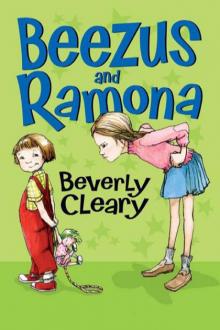 Beezus and Ramona
Beezus and Ramona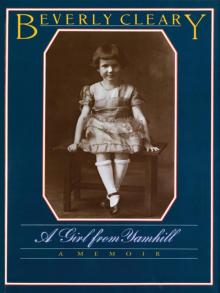 A Girl from Yamhill
A Girl from Yamhill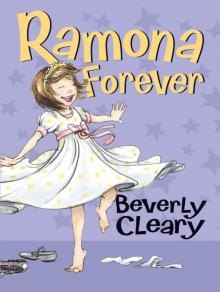 Ramona Forever
Ramona Forever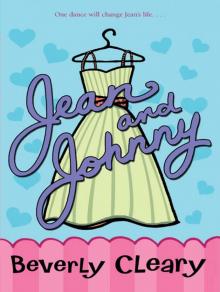 Jean and Johnny
Jean and Johnny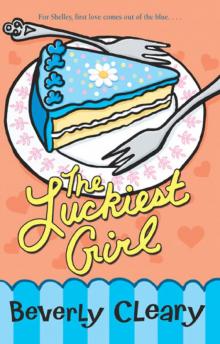 The Luckiest Girl
The Luckiest Girl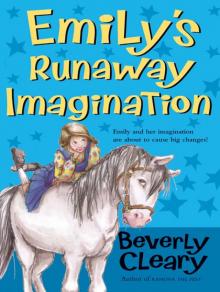 Emily's Runaway Imagination
Emily's Runaway Imagination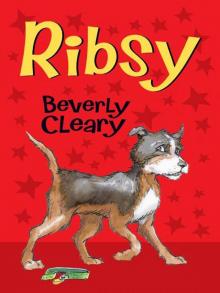 Ribsy
Ribsy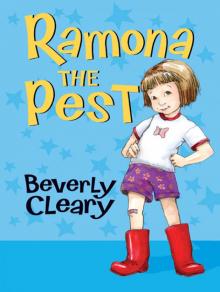 Ramona the Pest
Ramona the Pest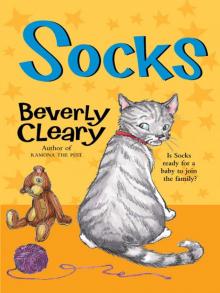 Socks
Socks Ramona's World
Ramona's World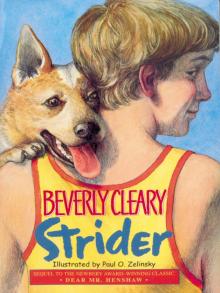 Strider
Strider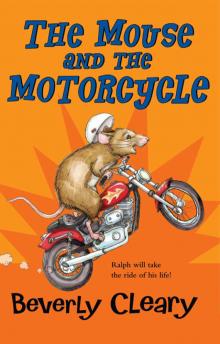 The Mouse and the Motorcycle
The Mouse and the Motorcycle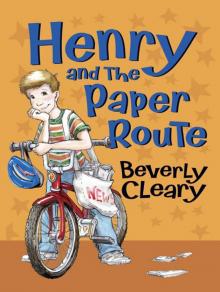 Henry and the Paper Route
Henry and the Paper Route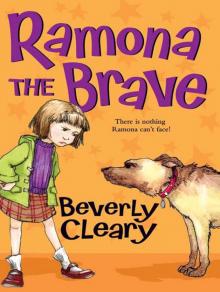 Ramona the Brave
Ramona the Brave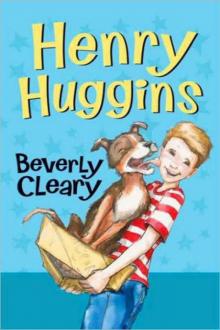 Henry Huggins
Henry Huggins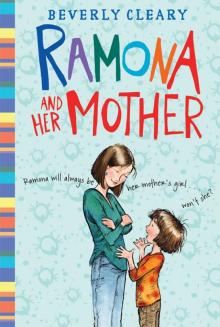 Ramona and Her Mother
Ramona and Her Mother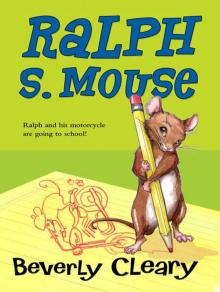 Ralph S. Mouse
Ralph S. Mouse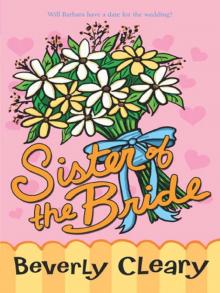 Sister of the Bride
Sister of the Bride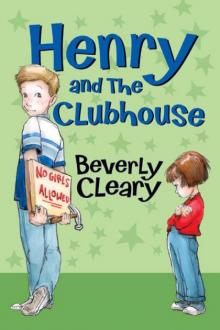 Henry and the Clubhouse
Henry and the Clubhouse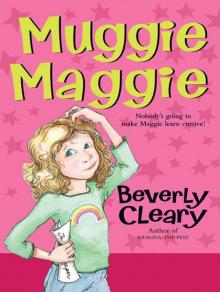 Muggie Maggie
Muggie Maggie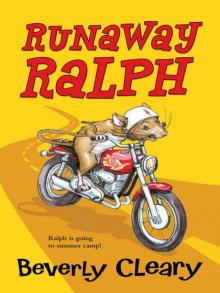 Runaway Ralph
Runaway Ralph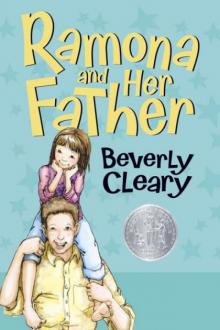 Ramona and Her Father
Ramona and Her Father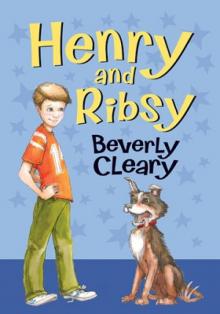 Henry and Ribsy
Henry and Ribsy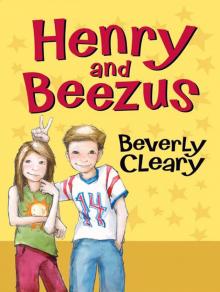 Henry and Beezus
Henry and Beezus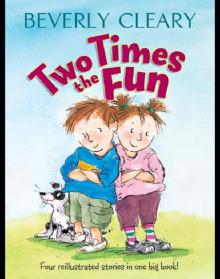 Two Times the Fun
Two Times the Fun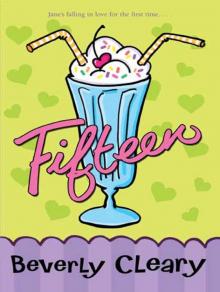 Fifteen
Fifteen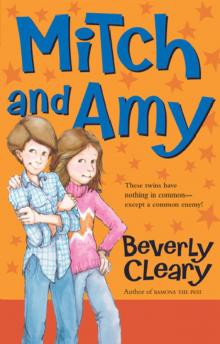 Mitch and Amy
Mitch and Amy